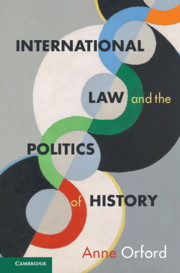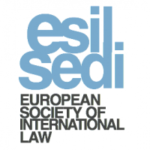2022 ESIL Monograph Prize
The 2022 ESIL Monograph Prize was awarded in September 2022 during the 17th ESIL Annual Conference in Utrecht to Anne Orford for her book International Law and the Politics of History (Cambridge University Press, 2021).
Jury’s decision:
This is a deep work of intellectual investigation at the intersection of international law and history, exploring the “hermeneutics of suspicion” that have emerged between the two disciplines (and of which Anne Orford has been one of the leading protagonists on the international law side). As such, it is really a kind of legacy book, a testimony to what it means to engage in history as an international lawyer, and a reply to some of the critiques that have been leveled by professional historians.
The book is very well written and overall extremely thoughtful. To some extent the book’s intended audience is historians rather than international lawyers: it reproaches them for thinking that their archival historical methods are more objective than international lawyers’ work of interpretation through a kind of tu quoque. But it is also a critique of international lawyers’ enthusiasm for history as neophytes engaged in “method laundering”. As such, it also serves as a kind of defense of international law-doing that does not shy from its politics, is immersed in realism, yet is also powerfully aware of its constitutive genealogies.
The book is inspiring in many respects. It will be a great read for many graduate students and for everyone engaged professionally or academically in international law. It is also a remarkable example of interdisciplinary scholarship: much vaunted and encouraged but often elusive. Anne Orford is clearly cognizant in the languages of both international law and history (and social theory in general).
Ultimately, the Jury felt that this was the book that displayed most intellectual leadership in our current moment. Part of the “turn to history” as several of the leading contenders in this edition, it is also the one that goes most deeply into the politics of writing international law’s history and in the process delivers the most calibrated and challenging message. In short, the Jury felt this was a highly earnest engagement with the discipline’s fallibility and potential and the book that ESIL members should read.


